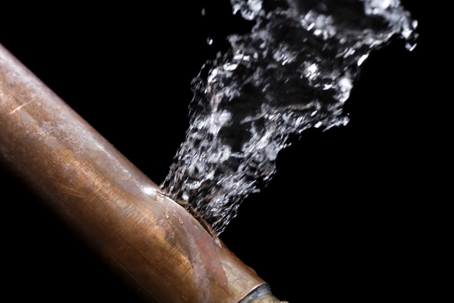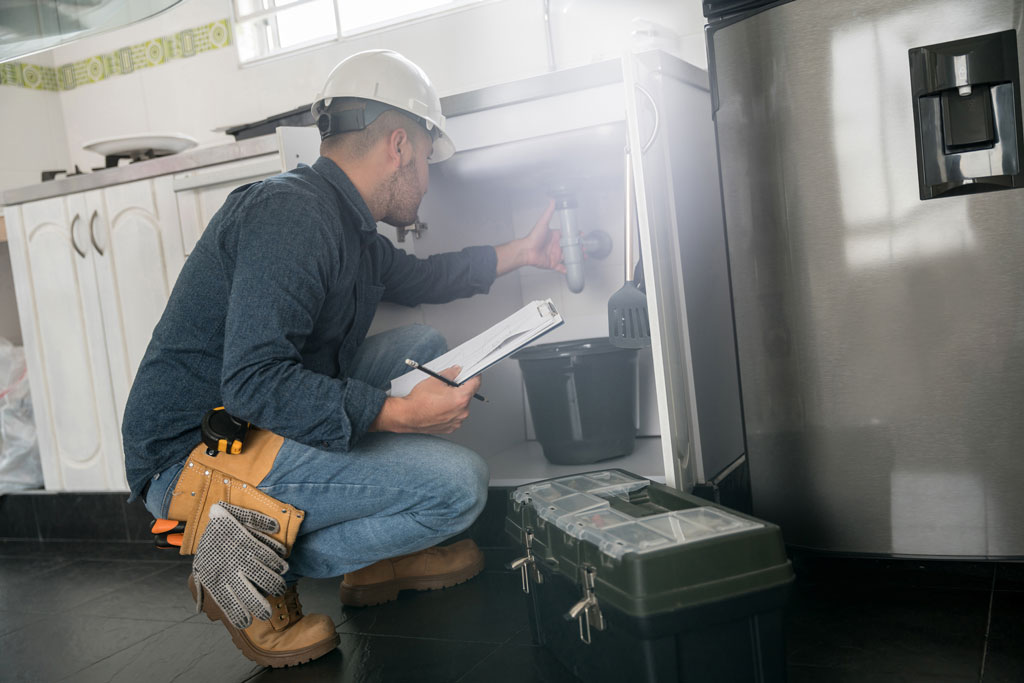Key Fixes for Emergencies: Steps to Take Until Assistance Arrives
Key Fixes for Emergencies: Steps to Take Until Assistance Arrives
Blog Article
How do you feel in regards to Plumbing Emergencies: Tips on What To Do Before?

Plumbing emergencies can strike any time, creating stress and anxiety and possible damages to your home. Whether it's a ruptured pipe, a blocked drain, or a leaking faucet, knowing how to take care of the scenario up until an expert plumbing technician shows up can save you from more difficulties. This post supplies vital emergency pipes pointers to assist you reduce damage and reclaim control throughout a plumbing dilemma.
Turn Off the Water Supply
The primary step in any type of plumbing emergency situation is to turn off the supply of water. For local concerns, such as a leaking faucet or commode, shut off the valve near the component. In the case of a significant leak or burst pipeline, find your home's main water shut-off shutoff and transform it off instantly. Understanding the location of these shutoffs in advance can save beneficial time during an emergency.
Address Little Leaks with Short-lived Fixes
Tiny leakages can swiftly become considerable problems if left untreated. Use these short-term solutions up until professional help gets here:
While these solutions aren't long-term, they can aid reduce water loss and damages.
Unclog Drains Safely
A clogged up drain can be a discouraging and messy problem. Below's how to tackle it:
If these techniques do not work, avoid making use of excessive force, as it might get worse the blockage.
Manage Overflowing Toilets
An overflowing bathroom can create immediate disorder. Here's what you should do:
Turn off Your Hot Water Heater
In certain emergencies, such as a burst pipe, it's wise to shut off your water heater. This avoids overheating or damage to the unit when water stops flowing. Shut off the power supply to the hot water heater (electric or gas) and let it cool off to stay clear of possible threats.
Momentarily Quit a Burst Pipeline
A burst pipe can cause considerable water damages in mins. To minimize the problem:
Call a professional plumbing professional promptly to attend to the issue permanently.
Handle Frozen Water Lines Thoroughly
In colder environments, frozen pipelines are a common emergency. If you believe an icy pipe:
Protect against Additional Damage
Taking fast activity to reduce damage can conserve you time and money in the future. Right here's how:
. Have an Emergency Pipes Kit
Prepare a fundamental pipes emergency situation set to manage minor issues properly. Your set should consist of:
Having these devices on hand can make a considerable distinction in your capacity to manage emergency situations.
Know When to Call a Specialist.
While quick fixes can assist momentarily, certain plumbing problems need immediate professional interest. Call a plumbing if:.
Without delay getting in touch with a professional makes sure the problem is settled appropriately and prevents further issues.
Conclusion.
Plumbing emergency situations can be frustrating, but with the ideal knowledge and devices, you can manage the situation efficiently until help shows up. By shutting off the water system, resolving small leaks, and using temporary fixes, you can minimize damage and keep your home safe. Keep in mind, these ideas are short-lived remedies; constantly consult a licensed plumbing professional to manage the origin of the trouble. Prep work and fast reasoning are your finest allies in any type of pipes emergency situation.
Top Tips for Emergency Plumbing Leak Repairs
Identifying the Leak Source
To properly address a plumbing leak, begin by locating the source using a flashlight and inspecting visible pipes for any signs of water accumulation or dripping. Look for water stains, mold growth, or musty odors which can indicate hidden leaks. Follow the water trail to pinpoint the origin of the leak. Check under sinks, around appliances, and near water heaters as these are common areas for leaks to occur.
If the leak is coming from a visible pipe joint, tightening the connection may solve the issue. Use a wrench to secure the joint without over-tightening, which could cause damage. For small cracks or holes, a temporary fix can be applied using epoxy putty or a pipe clamp until a permanent solution is implemented.
Remember to turn off the water supply before attempting any repairs to prevent further damage. Once the leak is identified, take necessary steps to either fix it yourself or contact a professional plumber for assistance.
Shutting Off the Water Supply
Before initiating any plumbing repairs, make sure you shut off the water supply to prevent further leakage. Locate the main shut-off valve for your property. This valve is typically found near the water meter or where the main water line enters your home. Turn the valve clockwise to shut off the water flow. If you’re dealing with a localized leak, like a sink or toilet, you can also shut off the water supply to that specific fixture by using the individual shut-off valves located underneath or behind the fixture.
Shutting off the water supply is essential to prevent more water from entering the system and causing additional damage. By taking this initial step, you can minimize the extent of the leak and prevent potential flooding in your home. Remember to inform everyone in the household about the water shut-off location in case of future emergencies. Once the water is off, you can proceed with identifying and addressing the leak source to resolve the issue effectively.
Temporary Leak Containment
If you’ve successfully shut off the water supply, the next step is to contain the leak temporarily to prevent further damage. Start by locating the source of the leak. Check for any visible cracks, holes, or burst pipes. Once identified, use materials like duct tape, pipe clamps, or rubber patches to cover the damaged area. For smaller leaks, a bucket or container can be placed underneath to catch dripping water.
If the leak is coming from a pipe joint, tightening the connection with a wrench might help reduce the leakage temporarily. Remember, these are just temporary solutions to prevent immediate damage. It’s essential to contact a professional plumber to assess and fix the issue permanently.
While containing the leak, keep an eye on the affected area for any signs of worsening. If the leak worsens or you’re unable to contain it effectively, don’t hesitate to contact emergency plumbing services for immediate assistance. Taking quick action to contain the leak can help minimize water damage and save you from costly repairs in the long run.
Contacting Emergency Plumbing Services
When facing a plumbing emergency, promptly reach out to professional plumbing services for immediate assistance. Contacting emergency plumbing services is essential to prevent further damage to your property. These professionals have the expertise and tools to address the issue quickly and effectively. When you call for emergency plumbing services, provide as much detail as possible about the leak, its location, and any steps you have taken to contain it. This information will help the plumbers assess the situation and come prepared to tackle the problem.
Ensure that you have the contact information for emergency plumbing services readily available, so you can act swiftly in case of a leak. Many plumbing companies offer 24/7 emergency services, so don’t hesitate to reach out, even if the leak occurs outside regular business hours. By contacting professional plumbers promptly, you can mitigate the damage caused by the leak and restore the functionality of your plumbing system efficiently.
Post-Repair Leak Prevention
To prevent future leaks after repairs, conduct a thorough inspection of all plumbing connections. Start by checking for any signs of corrosion, rust, or wear on pipes, fittings, and fixtures. Tighten any loose connections and replace any damaged parts to guarantee a secure fit. Additionally, inspect the seals around toilets, sinks, and tubs to make sure they’re intact and not deteriorating.
Consider installing water leak detectors in key areas of your home, such as near water heaters, under sinks, and around appliances like washing machines and dishwashers. These detectors can alert you to leaks early on, helping you address them before they cause significant damage.
Regularly monitor your water bill for any unexpected spikes, as this could indicate a hidden leak. If you notice a sudden increase in water usage without a corresponding change in your habits, it’s crucial to investigate the issue promptly.
https://callprofessorplumb.com/articles/top-tips-for-emergency-plumbing-leak-repairs/

Hopefully you liked our part on What to Do During a Plumbing Emergency. Thanks a ton for taking time to read our article post. For those who liked our blog post if you please be sure to share it. Thanks so much for going through it.
Click Here To Find Out More Report this page